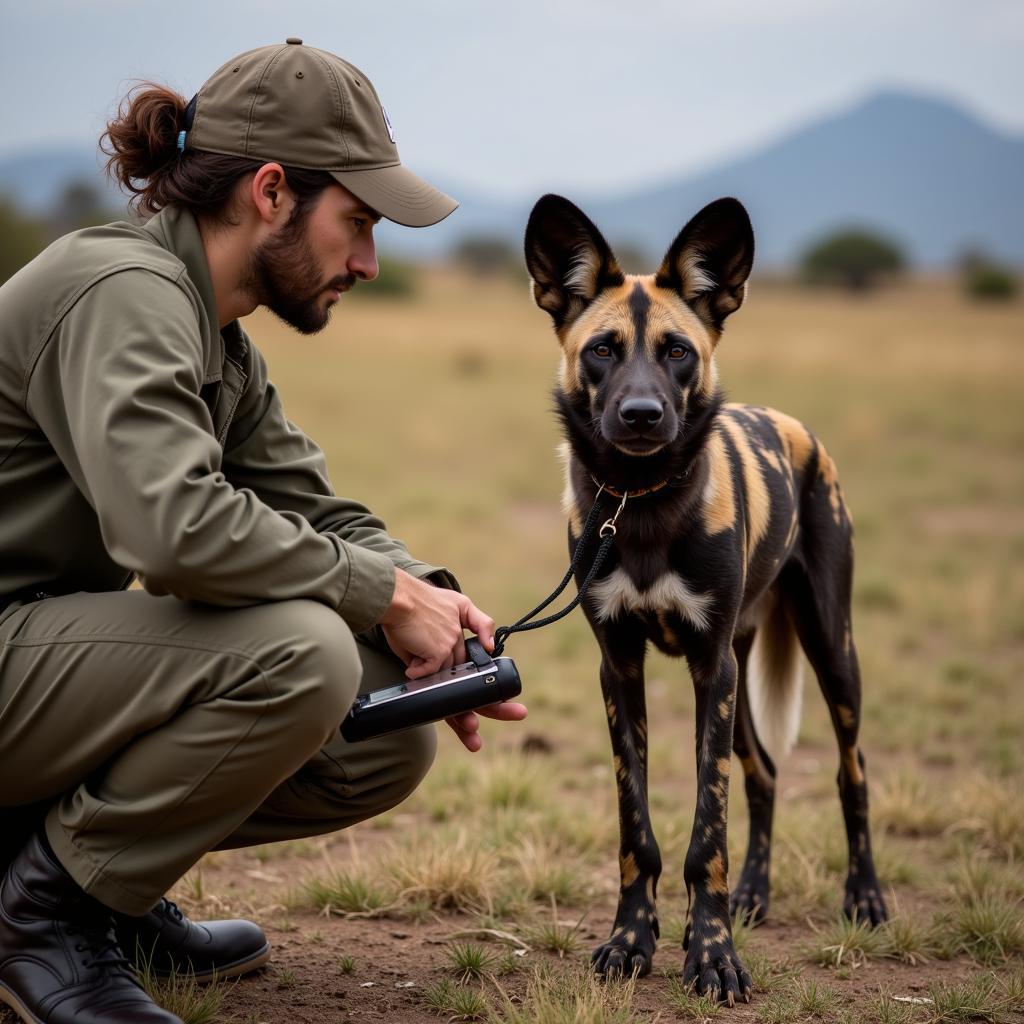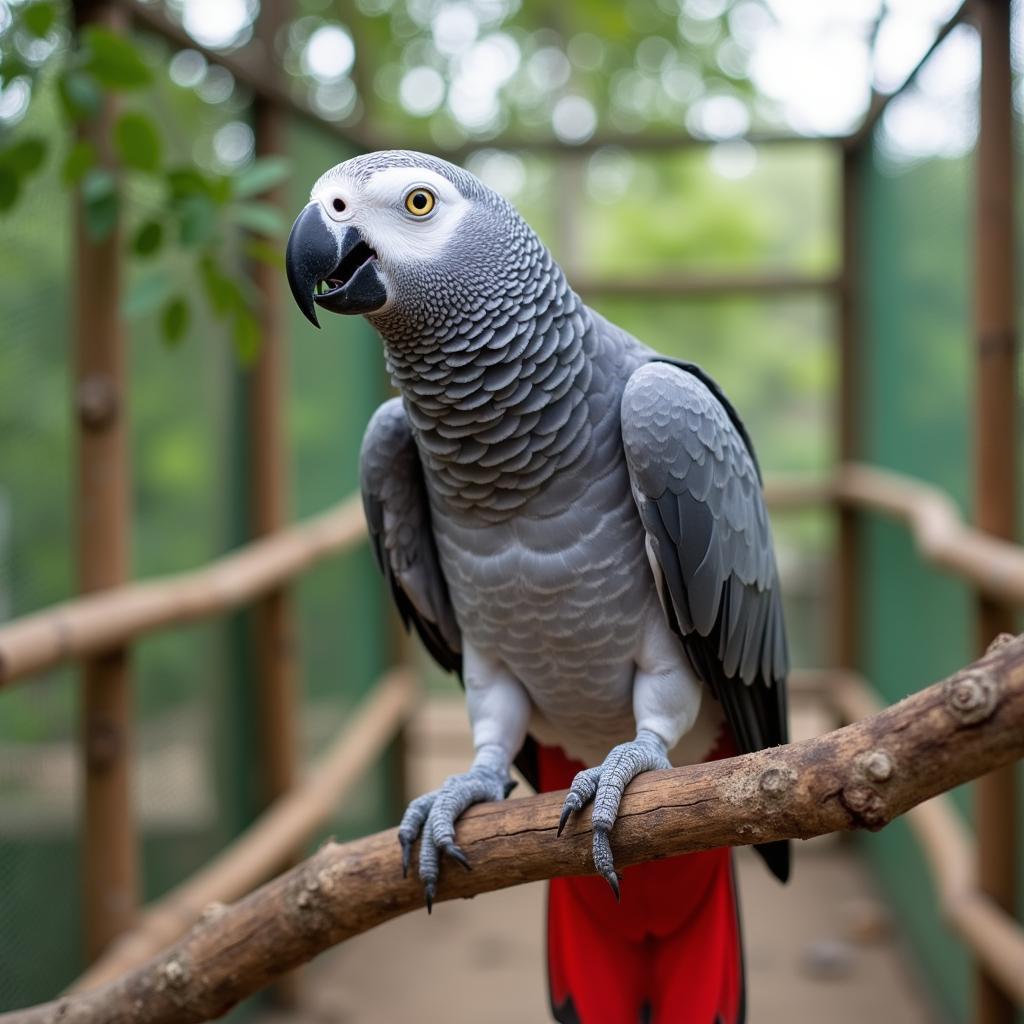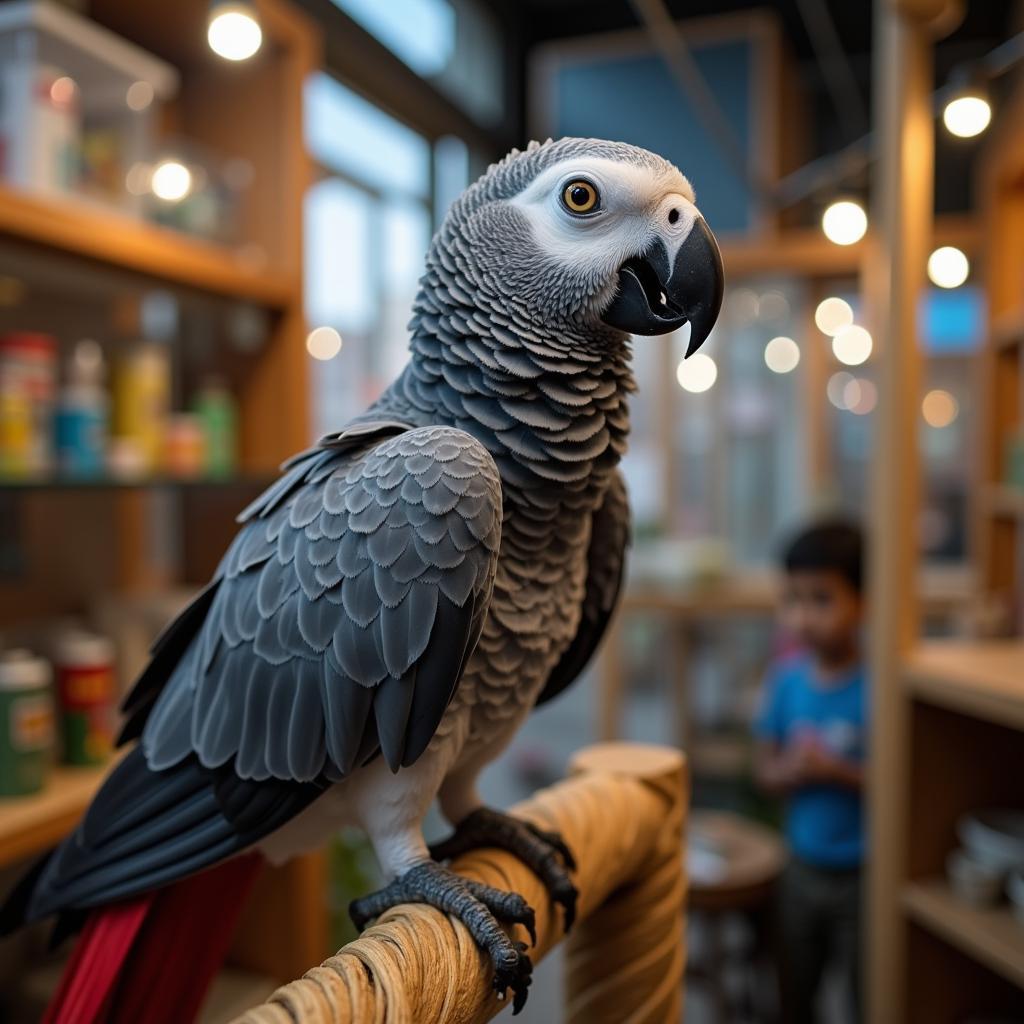Unveiling the African Fighting Dog: Myths, Realities, and Conservation
The term “African Fighting Dog” often conjures images of ferocious beasts bred for combat. However, this term is misleading and can refer to a few different breeds, often with negative connotations. This article will delve into the world of canids often mislabeled as “African fighting dogs,” exploring their true nature, dispelling myths, and emphasizing the importance of their conservation. Let’s shed light on these fascinating creatures and understand their crucial role in the African ecosystem.
The truth is, there’s no single breed officially recognized as the “African fighting dog.” This term is often misused, sometimes referring to the Rhodesian Ridgeback, sometimes to Boerboels, and other times to mixed-breed dogs used in illegal dog fighting. Understanding this nuance is crucial to appreciating the diverse canid population of Africa. For example, while the Rhodesian Ridgeback was initially bred to hunt lions, they are now known to be loyal and affectionate companions.
Debunking the “African Fighting Dog” Myth
The perpetuation of the “African fighting dog” myth is harmful to the canids it misrepresents. It’s crucial to separate fact from fiction and understand the true nature of these animals. Often, the term is applied to dogs used in illegal dog fighting rings. These activities are cruel and have nothing to do with the inherent nature of any specific African breed.
One breed often wrongly associated with this term is the Rhodesian Ridgeback. While historically used for hunting large game, including lions, the Ridgeback’s primary role was to track and bay, not to engage in direct combat. Their courage and loyalty are undeniable, but they are not inherently aggressive fighting dogs. Many breeds are powerful and protective, but labeling them as “fighting dogs” overlooks their rich history and the important roles they play within their respective communities.
Another breed sometimes mistakenly called an “African fighting dog” is the Boerboel, a large Mastiff-type dog from South Africa. Bred as a working farm dog, the Boerboel is known for its protective instincts and imposing size. However, like the Ridgeback, they are not inherently aggressive and can be loving family companions with proper training and socialization. Mislabeling these breeds as inherently violent perpetuates harmful stereotypes and hinders conservation efforts.
African Wild Dogs: The True Apex Predators
While the term “African fighting dog” is often misused, there is a truly remarkable wild canid native to Africa: the African wild dog (Lycaon pictus). These highly social animals are apex predators, playing a vital role in regulating prey populations and maintaining ecosystem balance. These dogs, with their unique mottled coats and large, rounded ears, are facing serious threats. Their population is dwindling, largely due to conflicts with humans, particularly those involving domestic dogs and livestock.
African wild dogs are known for their incredible cooperative hunting strategies and complex social structures. They are not “fighting dogs” in the sense of human-organized combat, but they are formidable hunters, essential to the health of African ecosystems. Learn more about their incredible bite force: african wild dog bite force. Their conservation is paramount, and understanding their true nature is the first step towards protecting them.
The Importance of Conservation
The continued use of the misleading term “African fighting dog” can hinder conservation efforts for various African canids. By perpetuating negative stereotypes, it can lead to misunderstandings and prejudice against these animals. For instance, some people might mistakenly believe that the greater kudu, a majestic African antelope, is frequently targeted by these so-called “fighting dogs”. In reality, African wild dogs play a crucial role in the ecosystem and help control populations of various animals, including kudu, ensuring a balanced and healthy environment. You can learn more about this fascinating animal here: african deer greater kudu.
 African Wild Dog Conservation Efforts
African Wild Dog Conservation Efforts
Furthermore, the mislabeling can overshadow the plight of the truly endangered African wild dog. This species faces numerous threats, including habitat loss, human-wildlife conflict, and disease transmission from domestic dogs. Sadly, the reality of african animals dying images highlights the urgency of conservation efforts for all African wildlife. You can explore more about the experiences of African American Power Rangers: african american power rangers.
“The term ‘African fighting dog’ is a gross oversimplification,” states Dr. Anika Mosi, a leading wildlife biologist specializing in African canids. “It obscures the unique characteristics and ecological roles of these diverse animals, and ultimately hinders our ability to protect them.”
Another expert, Dr. Jabari Olufemi, a renowned zoologist with extensive field experience in Africa, adds, “We must move beyond these simplistic labels and engage with the complexities of these animals and their vital place within the African ecosystem.” Understanding the nuances of each breed and their individual roles is crucial to developing effective conservation strategies. For example, consider the benefits and uses of african black soap acne review.
Conclusion
The term “African fighting dog” is a misleading and often harmful generalization. By understanding the true nature of the animals often mislabeled with this term, we can appreciate their unique characteristics and ecological importance. Let’s dispel the myths and focus on the crucial conservation efforts needed to protect these magnificent creatures for generations to come. The future of African canids depends on accurate information and a commitment to their well-being.
FAQ
- What is the “African fighting dog”? The term is a misnomer often applied to various breeds, but there is no single breed officially recognized by this name.
- Are Rhodesian Ridgebacks fighting dogs? No. They were historically used for hunting, but they are not inherently aggressive.
- What is the African wild dog? The African wild dog (Lycaon pictus) is a highly endangered wild canid native to Africa.
- Why is conserving African canids important? They play a vital role in maintaining the balance of the African ecosystem.
- How can I help with African wild dog conservation? Supporting conservation organizations and spreading awareness are essential steps.
- Are Boerboels aggressive? Not inherently. With proper training, they can be loving companions.
- What are the threats to African wild dogs? Habitat loss, human-wildlife conflict, and disease transmission are major threats.
Need assistance? Contact us 24/7: Phone: +255768904061, Email: [email protected] or visit us at Mbarali DC Mawindi, Kangaga, Tanzania.


